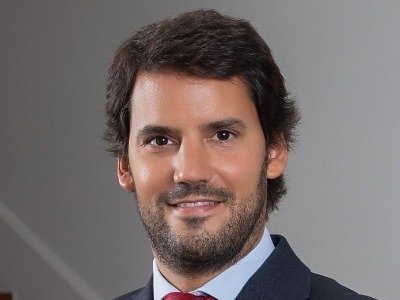Diversity: law firms ́ recruitment policies common denominator

Now that the employment situation is so affected by the COVID-19 crisis, at Iberian Lawyer, we wanted to know what the selection criteria are for some Spain ́s BigLaw and middle-market law firms and the top ones from the Portuguese market; which universities they go to in search of new talent, what profiles and what specific degrees they prefer, and how they train recruits. According to their answers, diversity is the common piece of a puzzle where they all fit together. Apart from Law, double degrees and international experience are very valued, with professional English being a sine qua non requirement. As for soft skills, flexibility, commitment and teamwork, followed by commercial skills and an aptitude for innovation, are the most in-demand.

This is an extract from the law firms participations. To read the article in full please download issue N.97 here
SPANISH LAW FIRMS
Garrigues
“For Garrigues, recognising, attracting and retaining talent is essential. The profile we are looking for is mostly young people who have finished their degree in Law or double degree with a high professional motivation, great capacity for learning, solid legal knowledge and an excellent level of English. These are professionals who are teamwork oriented in an international environment and have a high degree of initiative, commitment and responsibility. Along with legal knowledge, an open mind is essential. We need people with vision, the ability to talk, who know how to listen, who are innovative and who are aware of what is happening in the world,” explains Laura Elorza, head of the Human Resources department at Garrigues.
Cuatrecasas
Núria Rexach, Human Resources manager and head of Talent at Cuatrecasas, says that “Cuatrecasas is a firm that is committed to incorporating young talent into its staff, through the Master’s degree internship program that students must take to pass the exam that will allow them to practice Law. Having a wide network of universities to work with has allowed us to incorporate candidates with more complete and specialised training. In recent years there has been an increase in the number of students who have studied double degrees such as Law and Economics, Law and Labour Relations, Law and International Relations, Law and Criminology, Law and Politics, etc. These complementary studies are very interesting for those professionals who want to dedicate themselves to specific areas in which the double degree is a value added. In the same line, more and more profiles are identified whose knowledge of languages goes beyond the standard of English, often as a result of international experiences, which are increasingly accessible to the students themselves. These stays abroad are often very beneficial for students. Beyond training and learning languages, they work on their ability to adapt, acquire multicultural experience, mature, take the initiative and explore new horizons that undoubtedly make them improve their professional and personal skills,” she says.
Uría Menéndez
We look for people with good knowledge of the Law and language skills, and who identify with our project and values. Candidates must be loyal and honest, a good team player, have a vocation for service, have good communication skills, judgement and common sense, and be intellectually driven, with the ability to adapt to change and multicultural environments,” summarises Icíar Rodríguez Inciarte, secretary-general of Uría Menéndez. “We believe in people, whoever they are and wherever they come from, and in allowing them to contribute talent through their diversity. Throughout their career at Uría Menéndez, we carry out continuous and individualised monitoring of each lawyer to maximise their professional and personal development,” concludes Icíar.
Deloitte Legal
“We value both the student’s CV and his or her academic record, which is very important, but we also take into account the candidate’s projection, as well as technical and personal skills, also considering languages and technological and innovation skills. The same criteria are followed in the selection processes for experienced professionals, with special emphasis on technical and management-oriented skills,” explains Cristina Prados, head of Talent at Deloitte Legal. “We give great importance to competencies other than the eminently technical ones. The desire to learn and face new challenges, the ability to work in a team, versatility or commitment, as well as our own values, are also a key factor for the candidate who wants to be part of the firm. That means they need to fit with the culture of innovation that we have in the firm since new technologies are having a huge impact on the way we interact with each other and with our clients.”
Baker McKenzie
Lilly Hristova and Ares García, heads of HR at Baker McKenzie in Madrid and Barcelona respectively, explain that the firm does not have closed agreements with any specific university to carry out annual internships, “any student meeting the selection process requirements, will take the tests and will be able to apply for a seat in the firm,” they say.For this firm, “academic excellence is essential. In addition, we ask for official degrees in English, or a high-level equivalent of that language, since we are an international firm, and many of the matters are international and in connection with other offices. Without a good level of English, it will not be easy to prosper in our selection process. On the other hand, the complement of another academic degree is always positive, since the candidate starts with a complete training that can be applied sooner or later at a practical level, either with a greater understanding of our clients’ business, for example, financial metrics, the firm ́s management, or other important subjects such as Law.” “The attitude and predisposition of the candidates, their motivation during the process and its follow-up, their commitment to the firm, their capacity to work in a team, their empathy, their capacity to work under pressure, knowing how to manage several issues at the same time, are all soft skills that we understand as fundamental.” They also place great value on previous experience “especially – they point out – if it comes from law firms, both national and international, inside or outside Spain.”
Clifford Chance
“At Clifford Chance, there is no prototype or homogeneous model of a lawyer. Each professional develops a career by remaining loyal to himself or herself in an open, inclusive and diverse work environment.” Fernando González, is HR executive at Clifford Chance. For him, the success of a professional services firm depends to a very high degree on the talent of its professionals. “It is our responsibility to look for it among Law students from different public and private universities across the country. Each class of lawyers that joins us is a sign of the firm ́s diversity. We hire students from different public and private universities, and we do not have exclusive agreements with any of them.” “We look for people committed to excellence and professional practice as lawyers, enthusiastic about facing new professional and intellectual challenges, who enjoy working as a team in an international and meritocratic environment,” the head of new talent says.
Pérez-Llorca
For the incorporation of junior lawyers to Pérez-Llorca, in addition to taking into account the academic record of the candidates, it is essential that the lawyers who join the firm have a good proficiency in English. “In addition —says Eva Delgado, the firm’s head of Human Resources— we look at whether the candidate has taken advantage of the university experience by combining it with other activities that help them to have a global vision, not only legal but also social and cultural. For example, if he has spent time in curricular and extracurricular training, if he has participated in complementary activities such as MOOT or if he has done volunteer work, among other things.” “The aim is to make our professionals grow both personally and professionally and to help them become complete lawyers,” summarises Delgado.
DLA PIPER
At DLA Piper Spain, Adela García de Tuñón, head of Human Resources, and Jara Evangelio, the firm’s Talent Selection manager, explain to us that, as this is an international law firm when it comes to hiring new talent, they look for professionals with a global mindset and an excellent level of English, in addition to a solid legal background. “We are looking for professionals who are rigorous, committed, with the ability to work, initiative and creativity in order to offer solutions to the client. We highly value flexibility and adaptability. The COVID-19 crisis has taught us that circumstances can change suddenly and that a good professional has to know how to adapt quickly to everything and, in turn, continue to provide excellent customer service and maintain a positive and collaborative attitude. In addition, for us, it is key that candidates identify with the firm’s values. Our values are part of our identity, and we work to make them a reality every day. This is very important because these values define our behaviour with our clients, with our teams and also with the society we are part of.”
CMS Albiñana & Suárez de Lezo
“Normally—says Antonio López-Montaño, head of Human Resources at CMS Albiñana & Suárez de Lezo— the way to start a career in our firm is through the internship in the Master’s degree in Access to Law.” Regarding the soft skills that are most valued in the firm, he says that “we look for lawyers with a great capacity for teamwork because we do not understand the profession in any other way than through collaboration, mutual support and comradeship. Professionals who seek excellence in their professional practice and, finally, we increasingly value profiles that are interested in innovation. From our point of view, the legal profession is transforming, and we want to lead this transformation.”
Ramón y Cajal Abogados
In the case of Ramón y Cajal, it is Francisco Palá, managing partner of Ramón y Cajal Abogados who summarises the general criteria that they follow when hiring new talent: “The requirements that we value are, mainly: good academic record, specialisation studies, either Master’s degree (in addition to the Access one), postgraduate courses or public examinations and a minimum level of Advanced English (C1). We value the previous national and international experience very positively, but it is not decisive when hiring a young lawyer.” “In terms of the soft skills that are most relevant to us, we particularly value technical quality, resilience and teamwork ability. We encourage more cooperative rather than competitive profiles, as this is essential for a good working environment and teamwork.”
Dentons
“Our size and number of offers don’t allow us to go to all the universities we would like. We look at all the CVs we receive on our job portal. Still, we only go to some universities that because of the level of their students and the training they receive we know from experience that would highly fit in the firm,” answers Antonio Moya, head of Talent at Dentons. “In the end, what we look for is good people. Proactive professionals, with a vocation for Law and who are good team players. After the legal knowledge, what we take care of the most is the work environment,” summarises Moya, who also states that the percentage of incorporation to the firm after the internship is 100 per cent.
CECA MAGÁN Abogados
María López-Olivares, head of HR of Ceca Magán Abogados, explains that, in the teams, they try to seek balance in all directions. “Proper previous training, vocation for Law practice, flexibility and commitment are some of the factors that we most value at Ceca Magán.” “In my opinion, today’s new lawyers have a very solid legal background, and many of them have a Master’s degree in their main area of interest. They speak English and even another language and have a high capacity for teamwork, adaptation and learning. They have already grown up in a digital world, and that is noticeable. From the moment they start their professional career, they are aware of the importance of customer orientation and the development of business skills, which are essential to progress in their professional career.”, she says.
PORTUGUESE LAW FIRMS
VdA
Matilde Horta e Costa, VdA Corporate Affairs & Talent director, explains to us “If they pass the first stage and move on to the interview stage, we also explore their values as people and citizens, what their ambitions and future plans are, and look at their creativity since innovation is one of the firms’ core values. When recruiting a lawyer, we must also take their professional experience, expertise and reputation into consideration, specifically in the practice that we are hiring for,” she says. VdA recognises the importance of soft skills to succeed in a demanding working environment. “Soft Skills such as teamwork, emotional intelligence, trust, drive and initiative are pivotal to our culture and the way in which we interact with our clients and stakeholders.”
MORAIS LEITÃO
“When hiring new lawyers for the firm, broadly speaking, Morais Leitão is very concerned about diversity and in favouring people with different backgrounds. Other than that, we are proud to uphold that we do not have a Morais Leitão specific type or profile. To be quite frank, we search for decent people, people with principles, and obviously with a high level of technical expertise and some basic soft skills that will enable them to have a successful career. Apart from that, the more diverse their background, the better. Creativity and the ability to think freely have always been a major asset for lawyers. Embracing different perspectives through diversity is, therefore, a huge advantage to our work, to our knowledge of the particular cultures in which we operate, and we actively promote it in the recruitment,” explains to us Martim Krupenski, Operations, HR & Training director at Morais Leitão.
PLMJ
Bruno Ferreira, PLMJ co-managing partner, states that: “At PLMJ, we are not recruiting trainees, we’re recruiting the next generation of partners. This means we are selecting the best people on top of the best academic track record, and we are doing that supported on a set of core values and standards that contribute to the culture we want to define: talent, innovation, diversity and the best human beings. When we are recruiting, we are looking into the next 20 years, and this means investing in our lawyers’ careers and personal development: we offer an extensive and comprehensive training program that include both hard and soft skills throughout their career, and we believe in exposing lawyers, since early years, to interesting and complex client matters.”
Abreu Advogados
Alexandra Courela, Abreu Advogados’ partner and head of Recruitment and Training Committee, explains that they look for people with a chronic sense of curiosity. “Innovators by definition. People who pay attention to new markets and new mentalities. We are looking for those who ask why. Those who are concerned with sustainability, human rights, diversity and our tomorrow. Those with digital skills besides a great Law curriculum, students who were able to combine legal studies with other activities. Those who are not concerned with formalities. We are looking for people who are searching for a place where they can make a difference. In addition to knowledge of the Law, having a mindset of being open to the world, of adapting to any problem and of taking responsible and sustainable decisions is a key part of the Abreu culture and is what we look for in our trainees.”












